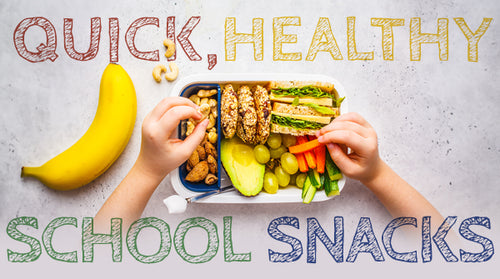You’ve taken it all in stride, from the 2 a.m. feedings to the scraped knees. And now...you’re the parent of a teenager.
Relax. Just like you’ve dealt with all of your child’s changes before now, you’ll handle this one, too.
Actually, “the teenage years have a lot in common with the terrible twos,” according to the Child Mind Institute (CMI) in New York City. “During both stages our kids are doing exciting new things, but they’re also pushing boundaries.” And for the same reason; in both cases, “kids must pull away from parents and begin to assert their own independence.”
The difference between teens and toddlers? “Teens are beginning to make decisions about things that have real consequences,” says the Institute. “But they aren’t good at regulating their emotions yet, so they are prone to taking risks and making impulsive decisions.”
That makes your child’s relationship with you crucial, even if he or she sometimes acts like you don’t exist. Here is how to keep the lines of communication open.
1. Observe and Listen
The best way to connect with teenagers is to make time for them. That means paying attention to what they say—and what they don’t.
It’s important to note major changes in “mood, behavior, energy level or appetite,” says the CMI. Also look for signs your child is losing interest in things that used to bring joy or if he or she becomes increasingly self-isolated.
If your teen does decide to talk, “be a good listener,” advises the Center for Parent & Teen Communication (CPTC) at Children's Hospital of Philadelphia. “Good listening is respectful. That does not mean you necessarily agree with what is being said; it is about creating a zone of safety free from interruption, interrogation or reaction.”
2. Control Your Reactions
That ability to not get riled up—or start in with a tirade—is crucial.
“When parents serve as sounding boards, listening deeply and offering guidance when asked, young people learn to bounce ideas off of us,” notes the CPTC. “On the other hand, when we react strongly, they stop telling us things they think will make us uncomfortable or angry.”
That may not always be easy, especially if your child is taking his or her frustrations out on you.
“It’s easy for your temper to flare when your teen is being rude,” says the CMI. “Remember that you’re the adult; count to ten or take some deep breaths before responding.”
That also requires shutting off the parent alarm: Showing signs of anxiety or fear isn’t going to get the conversational ball rolling.
As the CPTC puts it, “Non-reaction is the name of the game. Remain calm and aim to listen first.”
3. Empathize with Your Teen
Instead of lecturing (or worse, screaming), try to put yourself in your kid’s shoes.
Don’t dismiss his or her “feelings or opinions,” advises the Canadian Paediatric Society (CPS) through its website Caring for Kids. “Listen to your teen’s point of view with an open mind.” The Childmind Institute suggests reflecting what he or she says back to them by saying something like, “Wow, that does sound difficult.”
Empathy also means making space for weightier conversations. “Think about the things your teen might want to talk about—relationships, sex, drugs, alcohol—so that you are ready when they come to you with difficult questions or ideas,” says the CPS.
Not all convos have to be of the heavy variety, of course; make time to frequently ask your child about things like sports or hobbies, the music or video games they’re interested in, their plans for the weekend. In the words of the CPS, “Try to recognize your teen’s knowledge and learn from them, too.”
Most of these discussions should be face to face. “While text messages can be a good way to keep in touch with your teen, try to have more important conversations in person,” says the CPS. “Texting leaves too much room for misinterpretation and texts can easily be ignored.”
Getting your child to talk may take some doing at first, so be gently persistent. “Some parents tend to just be quiet, and stop asking,” says Vanessa Jensen, of the Cleveland Clinic’s Center for Pediatric Behavioral Health. “Or if a child begins to give them an, ‘Oh, I don’t know … it’s fine,’ some parents feel like they shouldn’t ask. I would encourage parents to keep asking.”
Above all, take your child seriously. The CPS says to not “make fun of your teens or share their personal stories with others.”
4. Don’t Force—Guide
There’s no faster way to shut down communication than by taking a my-way-or-the-highway approach.
“Don’t be a dictator,” advises the CMI. “You still get to set the rules, but be ready to explain them.”
Instead, “offer constructive feedback,” says the CPTC, noting that “adolescents have incredibly strong sensors that pick up on criticism easily. On the other hand, they crave our guidance.”
The CPS suggests asking teens “how they think they should handle an issue they’ve brought up. This allows them to bounce ideas around, without you telling them what to do.”
5. Do Things—and Eat Meals—Together
It’s easier to talk to your teen if you spend a reasonable amount of time in each other’s company. The CPS recommends doing “regular activities together, such as going to the movies, going for a hike or going skating.”
That’s especially true when it comes to mealtimes. “Family meals are an excellent way to connect with each other and talk about the things that happened during the day,” notes the CPS.
Part of family time should be spent in doing chores together. That’s important for children of all ages but especially crucial during the teenage years, as your child approaches adulthood. As the CPS puts it, “if your child doesn’t learn how to make their lunch by age 13 or 14, they are not going to suddenly start doing it right when they move out.”
6. Realize That Their Lives Are Different
Did you have problems as a teenager? No doubt. But it helps to remember just how different the world is now: Did you ever have to worry about being bullied on social media?
The rapid development of the social media universe is only one example of how quickly things are changing, a pace of change that has only increased over the past several decades. Your steady presence can help your teen not only cope with the challenges that life brings—but learn how to thrive in all of life’s seasons.
Like this article? You’ll love our weekly newsletter
sign up here!
**These statements have not been evaluated by the Food and Drug Administration. This product is not intended to diagnose, treat, cure or prevent any disease.












































































